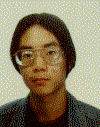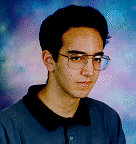
|
SSP Project Summary:
|
 |
Extending EPIC: Interactive Courseware in Engineering
Teaching methods prevalent in our universities have largely remained
unchanged, in spite of the opportunities that exist because of the near
revolutionary advances in IT. The general aim of this work would be to
identify the specific IT requirements for developing courseware for
engineering courses which have a computational content.
Following last year's (successful) SSP project ``Teaching High
Performance Computing via the World Wide Web'' we would like to continue
to ``explore various possibilities to use the WWW to promote the
awareness and use of HPC.'' EPIC allows students to study at their
own learning pace and also offers the possibility of distance learning.
Users can interact with the course being followed by executing programs
and applications on their local machines while accessing the course
material remotely. The learner is thus able to concentrate on the
course content and not system specific issues.
This proposal aims to extend EPIC package in two main ways:
- addition of further interaction by developing tools and exemplar
applications embedded within the course material using
Java/JavaScript. These simulations would allow students to study the
effects of changing simulation parameters and numerical techniques
used in an interactive manner from widely available Web browsers
(e.g. Netscape 2.0).
- provision of a mechanism within EPIC that allows users to add
material to the existing course in addition to incorporating the
potential for self assessment. It would also be worthwhile exploring
the possibility of porting EPIC to work within a PC environment thus
vastly increasing the user base for the package.
We propose to build and apply these new EPIC tools to implement
parts of an engineering course: Matrix analysis of structures,
on the Engineering departmental web server. In addition to the theory
of structural analysis students will be taught to use computer
programs for analysing framed structures.
The SSP students will be provided with HTML versions of the course that
will be converted to use EPIC. The division of labour amongst the
students will be as set below. Some collaboration will be required to
ensure compatibility and unison of effort. The tools developed will be
sufficiently general to be applied to other and future courses, both in
Engineering and EPCC. These developments will enhance the capabilities
of EPIC to teach HPC within EPCC and further afield.
Proposed Work plans
Student 1
- Week1 Training course
- Week 2-3 Learn Java/Java Script
- Week 4-5 Study the relevant course notes, exercises and
computing tutorials to identify areas where interactiveness is
required and specify simulation to be implemented in Java
- Week 6-8 Implement Java version of structural analysis solver
chosen above.
- Week 9 Integrate the new functionality and interactiveness into
EPIC
- Week 10 Report
Student 2
- Week1 Training course
- Week 2-3 Gain an understanding of EPIC, Perl and the Perl
scripts that make EPIC work
- Week 4-5 Explore the possibility of either extending the Perl
scripts to work within a PC environment or placing all the functionality
within the browser
- Week 6-8 Develop a framework which allows users to add to the
course material and provide some form of self assessment, implementing
the necessary Perl scripts.
- Week 9 Integrate the new functionality and interactiveness into
EPIC
- Week 10 Report
Expertise Required
Some programming experience (preferably in C or OOP concepts) and be
familiar with basic mathematics to understand the course. Basic
understanding of the Web and possibly HTML. Training will be
provided.
Resources Required
Workstation and access to a WWW server. Access to a Solaris or Windows
NT platform would be desirable to compile Java code, as well as Web
browser which will support JavaScript/Java applets (Netsape2.0).
Resources Supplied
Training materials for Java are available on-line from EPCC, which also
includes a wide range of Java examples and ``Applications Developers
Kit''. Some standard structural analysis FORTRAN codes used in the
course. These codes require a miniscule amount of CPU time (on a PC)
for the examples normally used in the course.
 Neil P Chue
Hong and
Neil P Chue
Hong and  Yazann Romahi worked on this project.
Yazann Romahi worked on this project.
Compressed PostScript of the project's final reports are
available: Yazann's here
(161 kbytes) and Neil's
here
(146 kbytes).


 Neil P Chue
Hong and
Neil P Chue
Hong and  Yazann Romahi worked on this project.
Yazann Romahi worked on this project.
 Webpage maintained by
mario@epcc.ed.ac.uk
Webpage maintained by
mario@epcc.ed.ac.uk